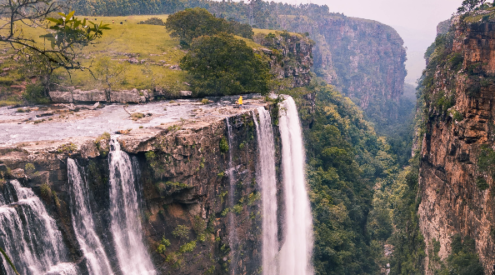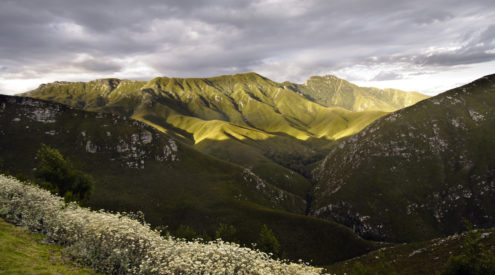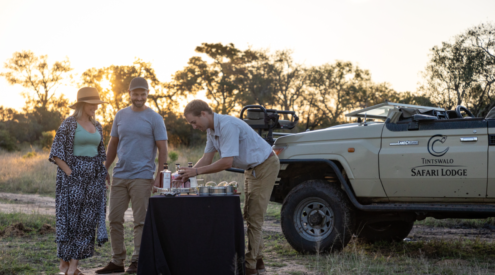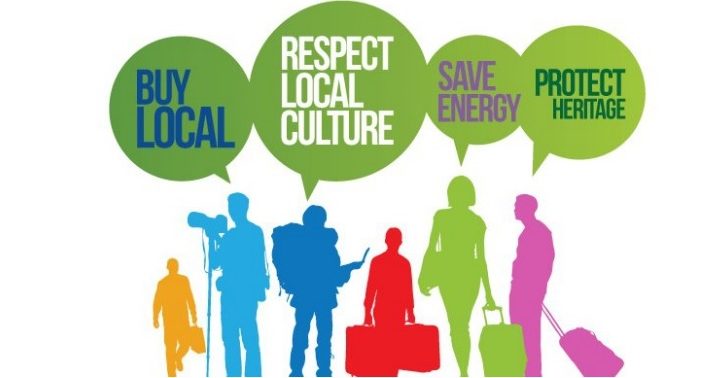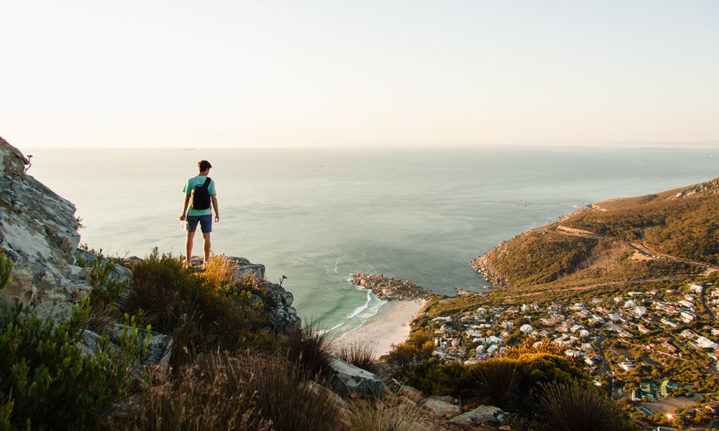Increasingly, travellers and tourism establishments are taking the concept of responsible and sustainable travel into consideration, and are making an effort to minimise their carbon footprint and boost their contribution to local communities.
As people become more aware of how their habits affect the natural world around them, we look at some ways to travel sustainably.
Bouncing back after Covid
After tourism numbers took a nosedive during the pandemic, we have reason to celebrate as people begin to pack their bags and head off to far-flung destinations once again.
This is good news for businesses and workers, but could it could mean bad news for the planet.
Overcrowding can damage sensitive heritage sites and increase pollution. More tourists who travel to pristine reefs unintentionally damage coral with their sunscreen. More hikers wanting to summit Everest is leading to a pollution problem.
It’s not all doom and gloom, however. In the wake of this, The UN has released 12 travel tips to help you travel to your favoured destination with minimal damage. It won’t solve the problem, but it’s a good start.
What ‘sustainable travel’ actually means
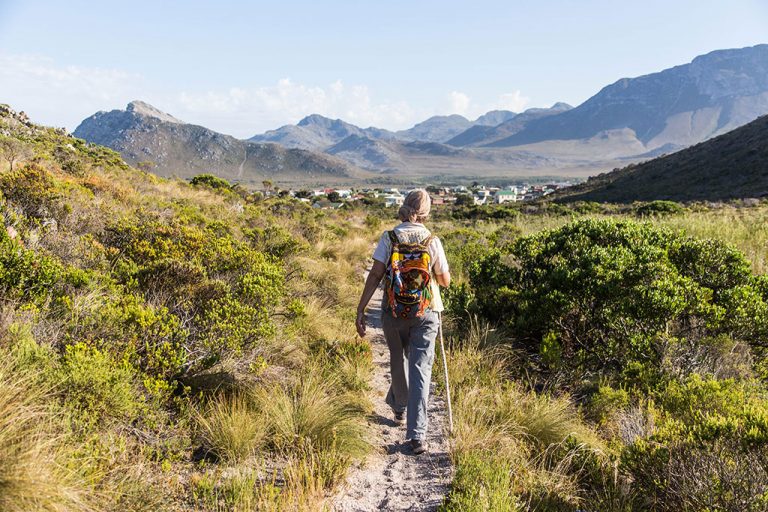
Image by Matthew Sterne
Sustainable travel is a three-tiered concept held up by the following pillars:
1. Employing environmentally friendly practices (reduce, reuse and recycle)
2. Protecting cultural heritage (restoring historic buildings or saving endangered species)
3. Providing tangible social and economic benefits for local communities (upholding the rights of indigenous peoples and supporting fair wages)
Why is it important?
Travel can pose an environmental and social threat to host countries. ‘Mass tourism has led to environmental damage, unsightly development, traffic congestion, overcrowding and the pricing-out of locals,’ says Getaway contributor, Justin Fox.
What you can do about it
Unsurprisingly, South Africa’s eclectic range of tourist attractions attracted more than 10-million foreign visitors every year pre-Covid, and even more locals travel within the country’s borders.
While the country is still relatively unscathed by the effects of over-tourism, it doesn’t mean that tourists, whether local or foreign, are exempt from the laws of sustainable travel.
If you’re still not 100% sure how to be a responsible tourist, here are nine tips on how to travel more sustainably in South Africa this summer.
1. Buy local

Mojo Market in Sea Point, Cape Town
Put the blinkers on, forget the franchises and pledge to buy local.
Travellers that consciously exercise their purchasing power can redistribute money from the developed world into developing countries. Local-level tourism in particular has a profound effect on poverty alleviation.
Unfortunately, there are two sides to this coin, as tourism can also contribute to economic leakage and human rights violations. For example, all-inclusive travel packages prevent travellers from interacting with local communities and often leave little to no opportunity for locals to benefit from tourism.
Try to be mindful of where you spend your money and make sure that your purchase benefits the local community by:
- Eating locally and dining in restaurants that use local ingredients;
- Visiting a local market;
- Buying locally, or even better,
- Supporting local businesses that use sustainable methods;
- Purchasing souvenirs from local artisans (this will encourage the preservation of their cultural heritage);
- Treating locals with respect (which includes not cancelling bookings at the last minute);
- Take a tour using a local guide in each destination you visit.
There are no shortages of opportunities to infuse your cash into the local community, so be sure to make spending choices that empower local entrepreneurs and boost the local economy.
2. Contribute towards conservation

Image by Anna-Mart Kruger
According to UNWTO, wildlife watching tourism is one of the most important tourism sectors in Africa, and rightly so.
Many African economies depend on wildlife and eco-tourism to fund programmes that protect their natural heritage like elephants and rhinos threatened by poaching, and various other endangered animals.
By supporting wildlife establishments, such as game and nature reserves, you are essentially promoting the conservation thereof – giving value to nature and providing the necessary funds to protect it.
Don’t overlook parks like Kruger and Hluhluwe-iMfolozi. In these areas, where rhino are still being heavily poached, a large portion of the income generated by eco-tourism will go straight towards security initiatives within the park.
3. Take the road less travelled

Image by Tyson Jopson
When trips are limited to all-inclusive resorts and over-touristed attractions, we cheat ourselves out of the little things that make a place truly unique and put unnecessary strain on popular destinations.
While the hordes scuffle down the well-trodden tourist track, why not venture out of the fold and into the fray?
By opting for an experience that offers real human connection, authentic culture and meaningful memories, you’ll be reducing pressure on local environments and infrastructure, and investing directly into local communities (isn’t this why we travel in the first place?).
But if you are still set on seeing a particularly popular site, try and plan your itinerary out of peak season.
4. Leave only footprints, take only litter
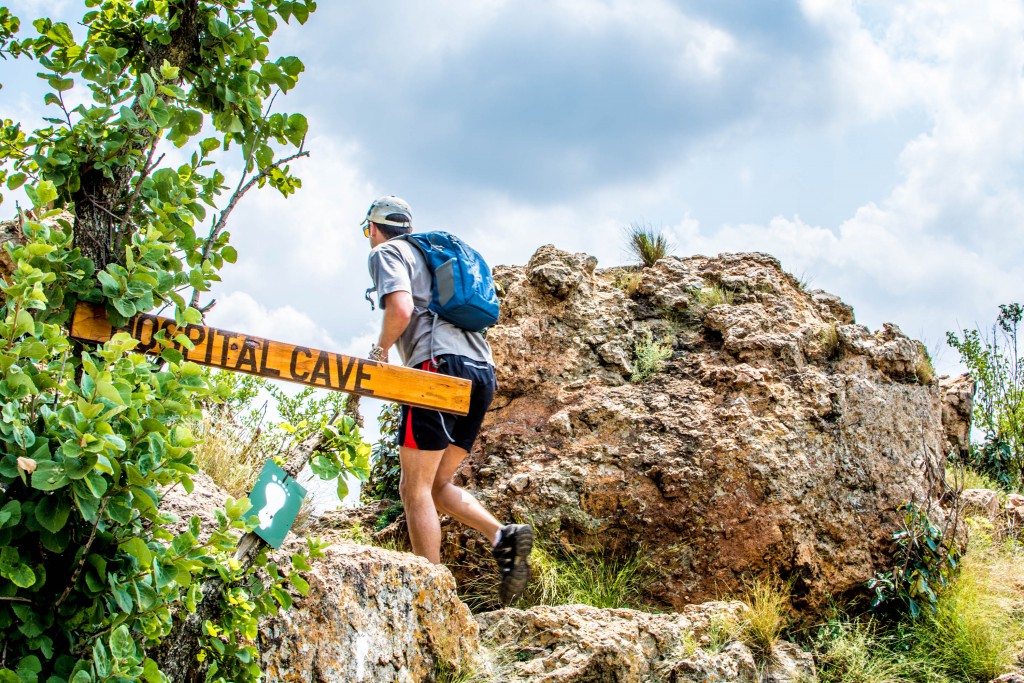
Image by Melanie van Zyl
South Africa is a great destination for keen hikers, with hundreds (if not thousands) of walking trails dotted across the biodiverse country.
Whether you’re tackling a technical hike or simply meandering along a scenic route, be sure to leave the trail in better shape than when you arrived. We recommend taking a small bag along to collect litter as you go (something that can also be done while walking on the beach).
Also, be mindful of your surroundings and don’t stray off the designated paths. These have been laid out for a reason and ‘bundu-bashing’ could affect the undergrowth. Refrain from picking any of the flowers along the path as this could disrupt natural life cycles within the ecosystem.
5. Avoid human-wildlife interactions

Image by Responsible Travel (responsibletravel.com)
Animal encounters have boomed in South Africa, catering for every animal lover’s need by offering cheetah walks, elephant rides, swimming with whales and dolphins and sharks, and even cage diving with crocs.
Although these experiences can be quite alluring and are often marketed as conservation initiatives, they often do more harm than good. Captive-bred predators, for example, will either be used to breed cubs for the purposes of cub-petting or fed into the canned-hunting industry to decorate a trophy hunter’s wall.
READ: New WildChoices list helps tourists choose ethical wildlife facilities
‘Real walking safaris in the bush are an incredible experience, but stay clear of any trips that offer the opportunity to walk with and pet [tamed] animals,’ says Jeremy Smith, founder of the Fair Game tourism initiative.
Shark diving can also be controversial, particularly where sharks are lured in from the depths by throwing chum (dead fish, offal and blood) into the water. This is viewed as irresponsible as it disrupts the animal’s natural behaviour.
6. Reduce your water consumption

Try use as little water as possible during your travels
On the whole, tourists use far more water than local residents. With a growing number of places experiencing water scarcity, the choices you make can help ensure people have adequate access to water in the future.
You can help by:
- Re-using your towels and bedding;
- Flushing the toilet less often (a single flush can use up to 14l of water!);
- Limiting your shower to two minutes;
- Reporting leaking taps and toilets and;
- Making use of a dishwasher to clean your dishes (be sure to run it only when full).
7. Travel with reusables

In South Africa, up to 84% of plastic waste is dispersed into oceans or overflowing landfills, and only 16% of plastic gets recycled.
Travel can be a huge source of disposable plastic, so travel with a reusable water bottle, a travel mug, a foldable/cloth shopping bag to carry your purchases, a metal/bamboo straw and utensils.
Also be on the lookout for ways to reduce your plastic consumption by opting for plastic-free packaging, purchasing items packaged in glass or tin, steering clear of cling wrap and chewing on less gum.
8. Support responsible township tourism
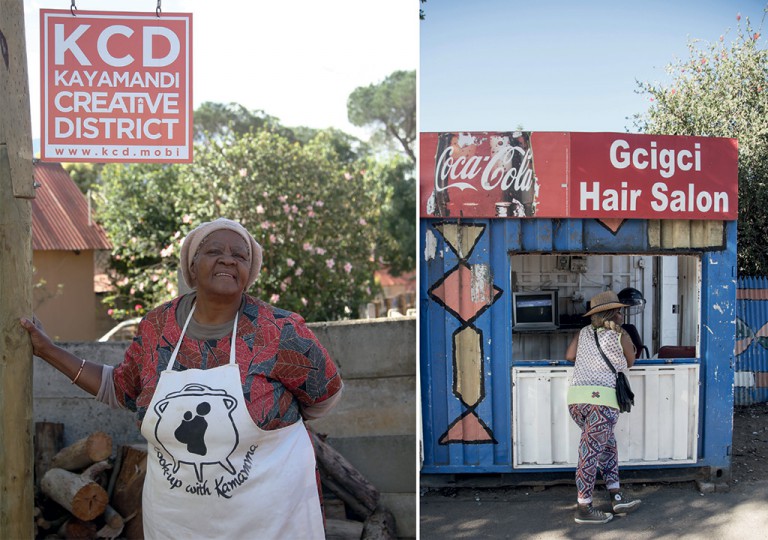
Mamma Swartbooi outside her home in Swartbooi Street and guide, Thembi Koli chats to a friend at a hair salon in Kayamandi. Images by Vuyi Qubeka
Township tourism has gained a reputation as a drive-by-shooting trip.
Sounds horrific, we know, but irresponsible township tours are often just that – an invitation for tourists to drive through and shoot photographs of some of the world’s most deprived people, without giving anything in return.
But when done right, a township tour can be an eye-opening and privileged experience, and create opportunities for some of the country’s poorest people to promote their heritage, generate an income for themselves and their families, and develop community initiatives.
When adding a township tour to your travel itinerary, be sure to ask the following questions:
- Are the guides from the township?
- Is a portion of the fee being returned to the community?
- Will you stop off on the way?
- Is there an opportunity to spend money?
For a real cultural exchange and learning experience, we recommend taking a walking or cycling tour.
9. Swot up on your South African history
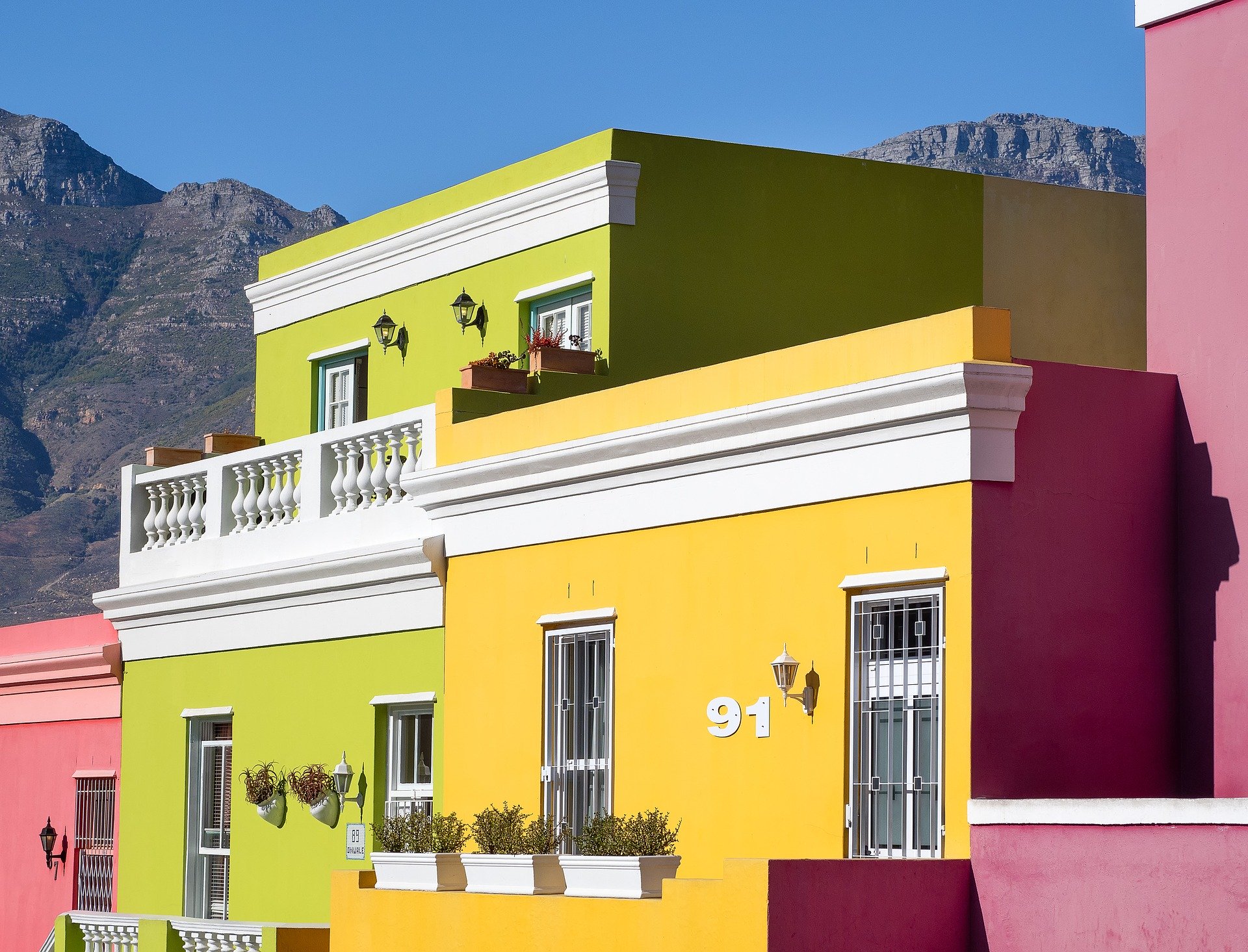
As a responsible tourist, the only way you can truly be mindful of the present is to understand the past.
Journey down South African history by visiting the Apartheid Museum – a place of peace and reconciliation created for the community to learn, remember and heal – exploring the Voortrekker Monument in Pretoria, learning about the destruction of Cape Town’s District Six, or touring the ethnically diverse Boo Kaap district with a local guide.
Exploring South Africa’s interesting and varied, and often sombre, history might not be the most light-hearted experience, but it definitely helps one to understand the fabric of South African society and appreciate how far the country has come.
If more and more travellers become mindful of their impact and take the above list into consideration when they travel, it will make a massive collective difference to the value of tourism in South Africa.
Stay savvy, and enjoy your South African travels – sustainably.
Featured image: Tim Johnson/Unsplash
ALSO READ



